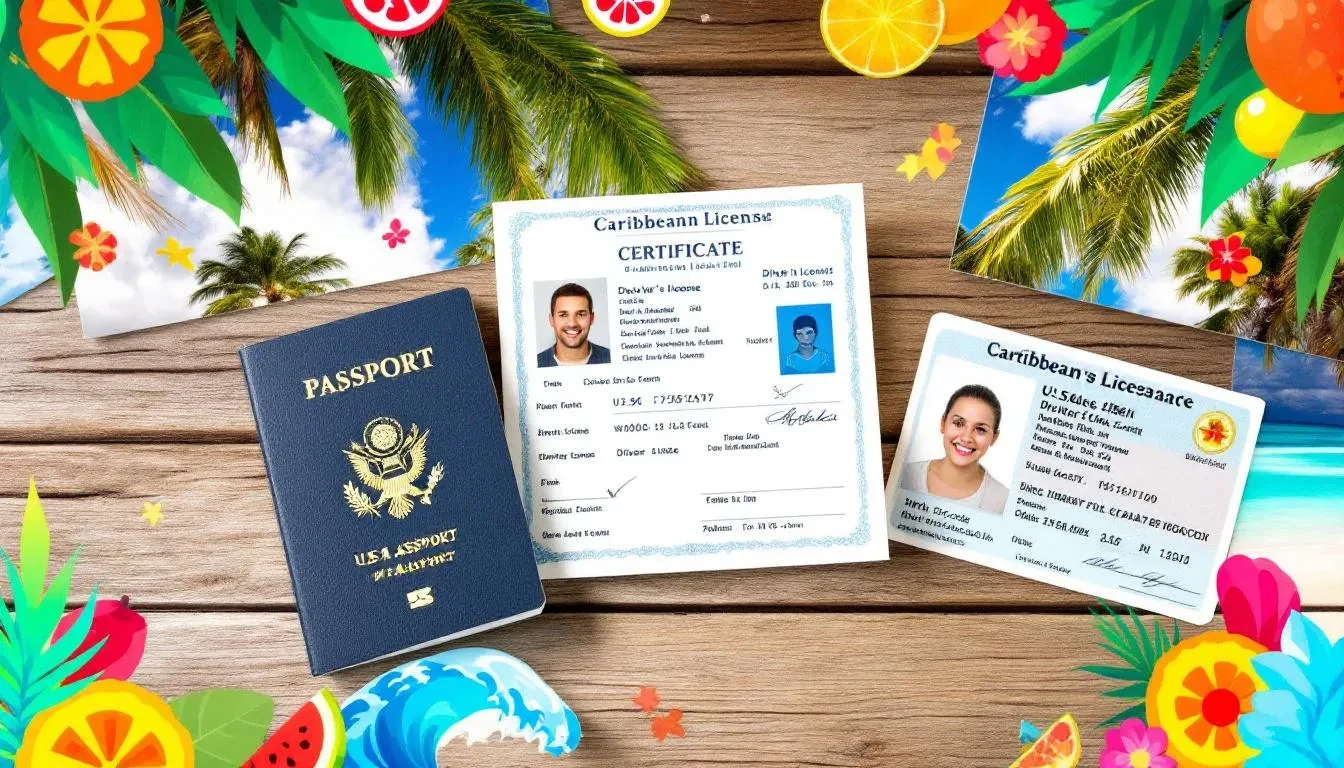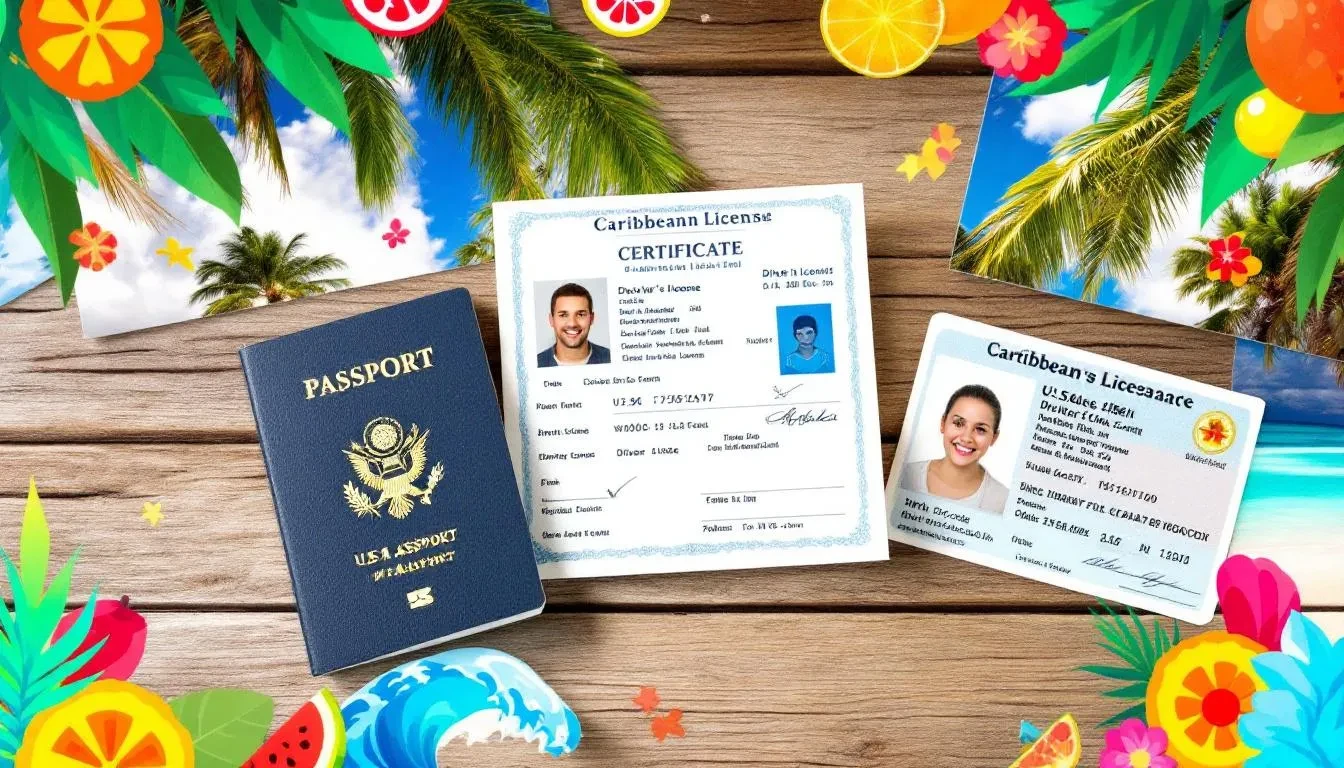Do You Need a Passport to Go to Puerto Rico? Essential Travel Guide


Key Takeaways
U.S. citizens can travel to Puerto Rico without a passport, using a valid government-issued photo ID instead.
Non-U.S. citizens must possess a valid passport and any required visas; visa requirements vary by nationality.
From October 2025, travelers must present Real ID-compliant identification for domestic flights, or a passport, to avoid delays.
Passport Requirements for U.S. Citizens

Traveling to Puerto Rico for American citizens is as straightforward as traveling within the USA. As a U.S. territory, Puerto Rico does not require a passport for U.S. citizens, similar to other territories like Guam and the U.S. Virgin Islands.
A valid government-issued photo ID, like a driver’s license or state-issued photo ID, suffices for U.S. citizens. These IDs are adequate for boarding domestic flights and identification on the island.
Puerto Rico’s travel simplicity makes it an appealing destination for U.S. travelers seeking a tropical escape to Jamaica without international travel documentation. Ensure your ID is current to avoid disruptions.
Non-U.S. Citizens Traveling to Puerto Rico

Non-U.S. citizens need a valid passport to enter Puerto Rico. This rule also applies to U.S. citizens arriving from a foreign country.
Visa requirements for non-U.S. citizens vary by nationality. Checking specific visa needs before planning a trip to Puerto Rico is essential to avoid denied entry.
Non-U.S. citizens should ensure their passport is valid for their stay and have any necessary visas or authorizations to visit. Proper preparation ensures a smooth and enjoyable vacation for non u citizens and their passports.
Real ID Act Compliance
From October 2025, travelers to Puerto Rico need a Real ID-compliant identification for domestic flights. This federal rule enhances security and standardizes IDs. A Real ID driver’s license, marked by a star in the upper right corner, meets these standards.
If your ID isn’t Real ID-compliant, an alternative like a passport is necessary. Non-compliant IDs may result in extra security screening and delays. Ensure your ID is compliant before traveling.
Passengers over 18 must:
Present Real ID-compliant identification or a passport at TSA checkpoints.
Note that from May 7, 2025, TSA will not accept non-compliant IDs.
Check and upgrade your ID if needed to avoid last-minute issues.
Travel Between U.S. Territories and Associated States

American citizens don’t need a passport to travel between U.S. territories, making island-hopping hassle-free. These territories include:
Puerto Rico
The U.S. Virgin Islands
Guam
American Samoa
The Northern Mariana Islands
Visiting freely associated states like the Marshall Islands and other countries requires a valid passport. These states have distinct regulations. Similarly, international travelers to other Caribbean destinations from Puerto Rico need a passport.
Seamless travel between territories and states like Florida and Hawaii, without a passport, enhances the appeal of exploring U.S. destinations and cities, including the federated states. Understand specific travel documentation requirements for each gov location.
Customs and Immigration Procedures

American citizens traveling to Puerto Rico from the mainland U.S. bypass customs and immigration, making travel as simple as flying to another state. However, some human proceeding procedures still apply.
Non-U.S. citizens must provide a passport number when booking flights and go through customs checks upon arrival. Be prepared for these procedures to avoid inconveniences. Customs duties may apply to items brought into Puerto Rico.
All travelers’ luggage may be inspected by U.S. Department of Agriculture officials for prohibited agricultural items upon departure. Declare such items to avoid fines. Awareness of these procedures ensures hassle-free entry.
Transportation Security Administration (TSA) Guidelines
Present an acceptable form of ID at TSA checkpoints in Puerto Rico, such as a driver’s license or passport. A passport is also valid for domestic flights, offering an alternative to those without a Real ID-compliant license.
If IDs aren’t Real ID compliant, expect additional screening or delays. Check your ID status and ensure you have acceptable identification to avoid airport search issues.
Carry copies of your prescriptions to avoid delays during security checks if bringing medication. Adhering to TSA guidelines and having the right identification and documentation ensures a smoother travel experience, saving you time and stress.
Currency and Money Matters
Puerto Rico uses the U.S. dollar, simplifying transactions for mainland travelers and eliminating the need for currency exchange.
Whether you’re dining, shopping, or exploring, the use of the dollar simplifies your financial transactions.
Language and Communication
Puerto Rico is bilingual with Spanish and English as official languages. Spanish predominates daily life and culture, while English is widely spoken in tourist areas and among the younger population.
The blend of Spanish and English creates a rich linguistic culture in Puerto Rico. Encountering Spanglish, a mix of both languages, is common. Puerto Rican Spanish includes unique words and phrases. Familiarizing yourself with common phrases can enhance your interactions with locals.
Understanding Puerto Rico’s linguistic landscape makes your trip more enjoyable and immersive. Aware of the prevalent languages helps you navigate your surroundings effectively, whether ordering food, asking for directions, or chatting with locals.
Phone and Internet Connectivity
Mobile phone service is generally available in Puerto Rico. Many major U.S. carriers offer service similar to the mainland, ensuring convenient connectivity. Check with your service provider about roaming fees if your plan doesn’t cover Puerto Rico before your trip.
Verify coverage and data rates in Puerto Rico to avoid unexpected charges and enjoy uninterrupted connectivity. Internet access is widely available, keeping you in touch with loved ones and navigating the island easily. Be sure to review the options available to ensure a reliable connection and contact your provider for any questions.
Renting a Car in Puerto Rico

Renting a car is the most efficient way to explore areas outside San Juan, offering flexibility and convenience. Car rentals range from $15 to $150 per day, depending on vehicle type and additional insurance and fees.
Liability insurance is mandatory when renting a car, covering damages to other vehicles. Most rental companies require drivers to be at least 25, though some rent to those over 21 with extra fees. Meeting these requirements ensures a smooth car rental experience.
Renting a car lets you explore Puerto Rico’s diverse landscapes at your own pace. From historic San Juan to lush rainforests and pristine beaches, a rental car helps you make the most of your trip and discover hidden gems.
Summary
Traveling to Puerto Rico offers a unique blend of convenience and adventure. For U.S. citizens, the lack of a passport requirement and the use of the U.S. dollar make it an accessible and straightforward destination. Non-U.S. citizens should ensure they have the necessary documentation, including a valid passport and any required visas.
Understanding the Real ID Act, customs and immigration procedures, TSA guidelines, and other travel logistics can help you prepare for a smooth journey. From language and communication to phone and internet connectivity, being informed can enhance your travel experience. Whether you are renting a car or simply exploring the island, Puerto Rico offers a rich and diverse travel experience.
Frequently Asked Questions
Do U.S. citizens need a passport to travel to Puerto Rico?
U.S. citizens do not need a passport to travel to Puerto Rico since it is a U.S. territory; a valid government-issued photo ID, such as a driver’s license, is sufficient.
What identification do non-U.S. citizens need to travel to Puerto Rico?
Non-U.S. citizens must have a valid passport to travel to Puerto Rico, and they may also need a visa based on their nationality.
What is the Real ID Act and how does it affect travel to Puerto Rico?
The Real ID Act mandates that as of October 2025, travelers must present a Real ID-compliant form of identification for domestic flights, including those to Puerto Rico; otherwise, a passport or alternate acceptable ID will be necessary. This legislation aims to enhance security and ensure that identification for air travel meets standardized requirements.
Are there customs procedures for U.S. citizens traveling to Puerto Rico?
U.S. citizens traveling to Puerto Rico do not need to go through customs or immigration procedures, while non-U.S. citizens are required to complete customs checks upon arrival.
Can I use my mobile phone in Puerto Rico?
Yes, you can use your mobile phone in Puerto Rico, as major U.S. carriers typically provide service comparable to the mainland. It is advisable to check with your service provider regarding coverage and any potential roaming fees.